Yesterday CoPMRE welcomed 30 colleagues to our Visiting Faculty bi-annual event showcasing the exciting medical developments at BU from the new Bournemouth Gateway Building to the Institute of Medical Imaging and Visualisation. The key priorities to support delivery of BU2025 were presented by Dr Clare Wedderburn, Interim Head of Department of Medicine & Public Health presented. Juan Campos-Perez, Clinical Research Co-ordinator, BUCRU spoke about Biobanks which were highlighted in Professor Emma King’s research presentation on immunotherapy. Professor Jeffrey Wale, Lecturer in Law encouraged innovative medical cross faculty collaboration demonstrated by his recent research collaboration with Professor Sam Rowlands, Visiting Professor resulting in four co-authored papers. The main focus of the meeting centred around Visiting Faculty engagement in research and education to help us achieve our aims. The audience reported that they were ‘very excited’ about these new developments at BU and were keen to support this vision.
Tagged / knowledge exchange
Talk/session with the Wessex Clinical Research Network Study Support Service
The National Institute for Health Research (NIHR) is the nation’s largest funder of health and care research – the NIHR oversee 15 Clinical Research Networks (CRN) and these CRNs work alongside NHS Trusts, primary care providers and Universities. Each CRN has a dedicated Study Support Service.
The NIHR have a portfolio of research studies that are eligible for consideration for support from the CRN in England. Portfolio status is usually vital to participating NHS Trusts when considering undertaking a proposed study.
Information on the NIHR portfolio is present on the research blog, but at this session our local CRN’s Study Support team will provide you with an opportunity to hear about and discuss the network and the service, and how it could benefit you.
This session is aimed at those planning on conducting clinical research.
It is also designed to raise awareness at BU about the benefits and importance of the NIHR portfolio, so if you’re just interested in learning more, please book on.
The session will take place next week on Tuesday 10th December at 2:30pm until 4:00pm on Lansdowne Campus.
To register your interest or if you have any queries, please get in touch with Research Ethics.
ESRC Festival of Social Science – Part 4
We’re continuing our look back at the ESRC Festival of Social Science, you can catch up on our coverage so far on the Research Blog.
Friday night featured two concurrent events. Professor Edwin van Teijlingen visited Poole Hospital to consider ‘How We Think about Pregnancy and Childbirth’, comparing different perspectives on pregnancy – from the social model of pregnancy, which accepts childbirth as a normal event in a woman’s life to the medical model, which portrays childbirth as potentially dangerous to health.
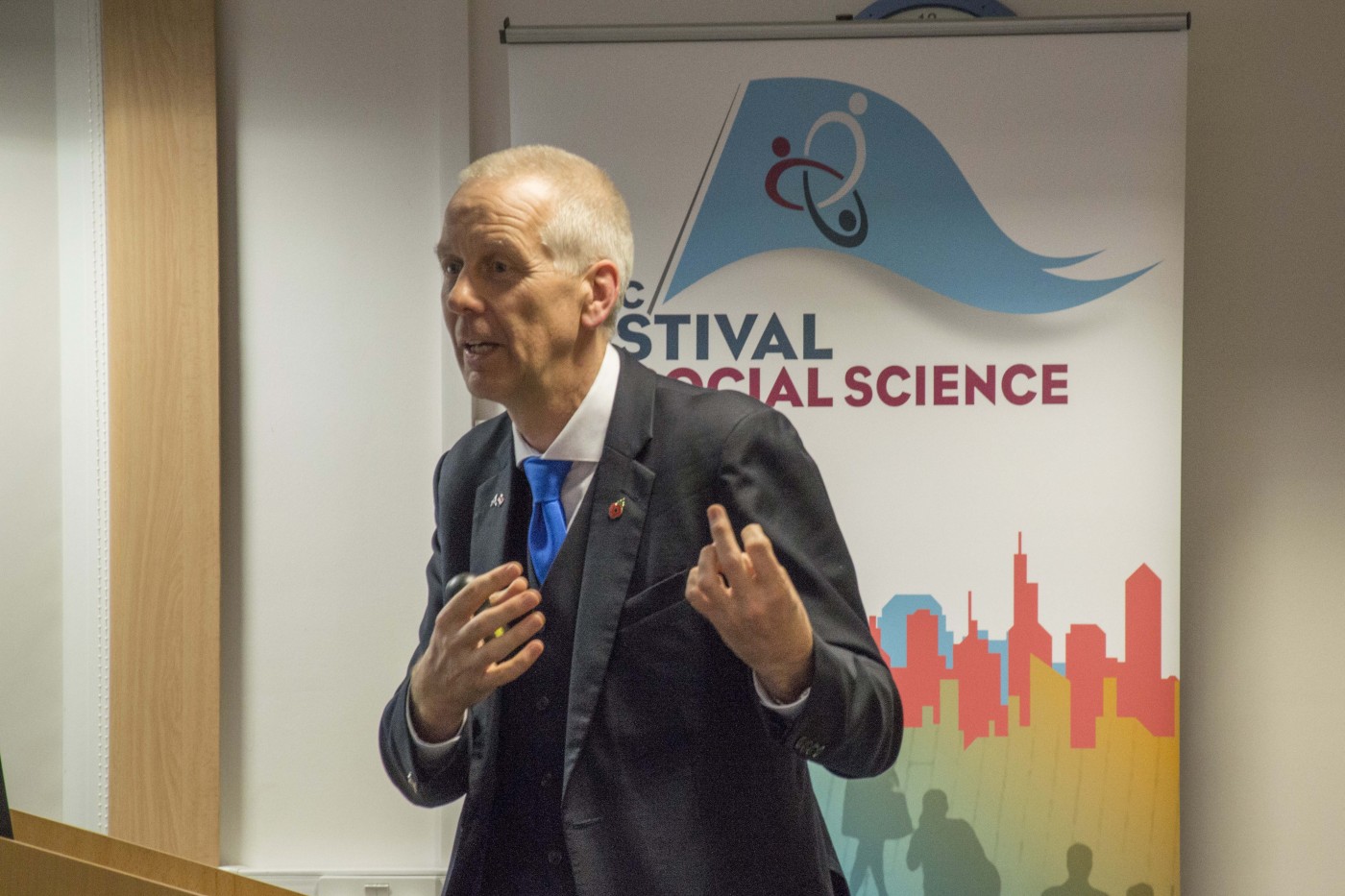

Dr Alison Taylor discussed infant feeding and shared research in the form of video diaries from first-time breastfeeding mothers.


At South Coast Roast café, we explored the idea of ‘Influencers for good’; can social media influencers be more than their media image as drivers of overspending, overconsumption and low self-confidence?
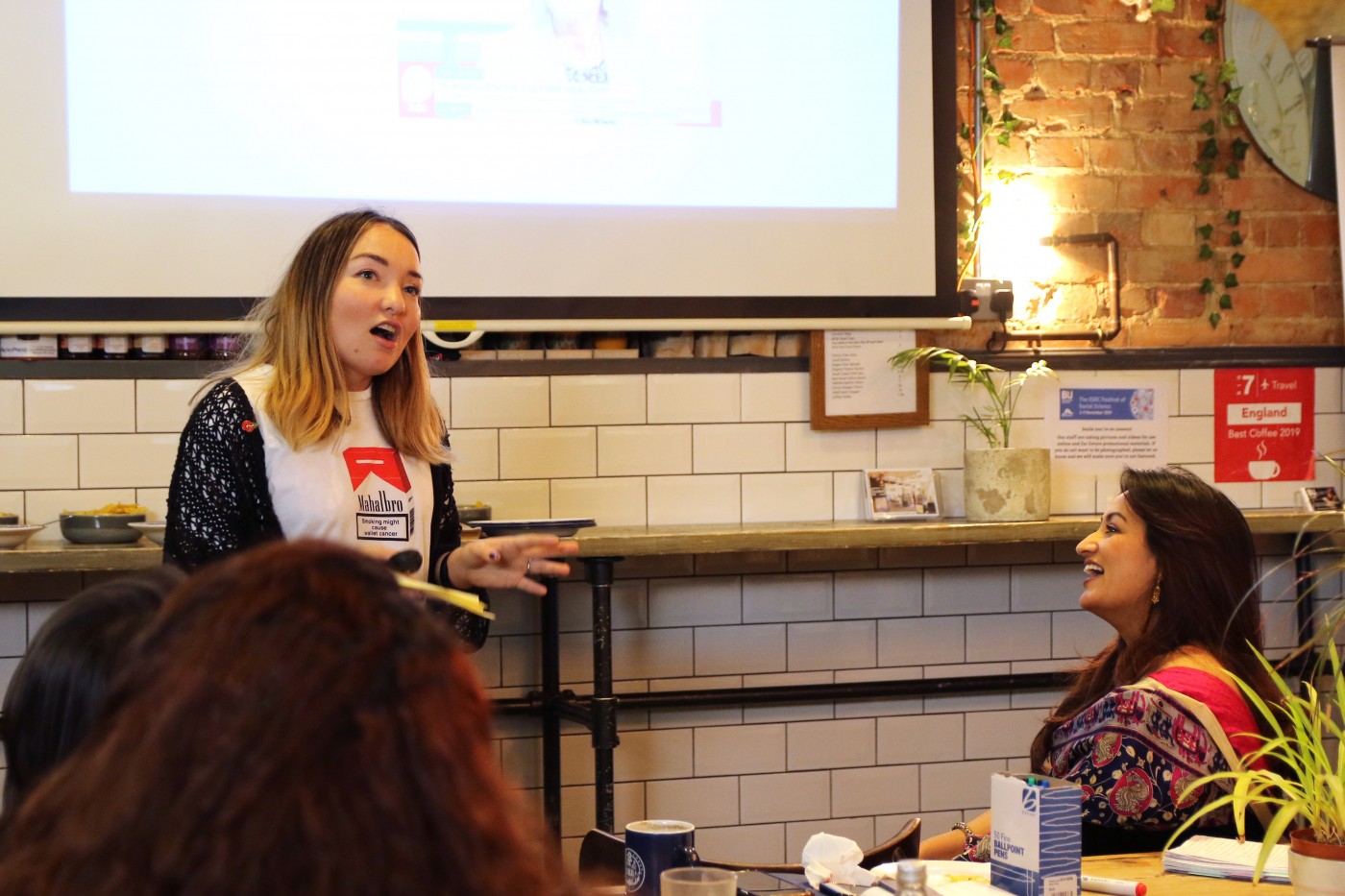
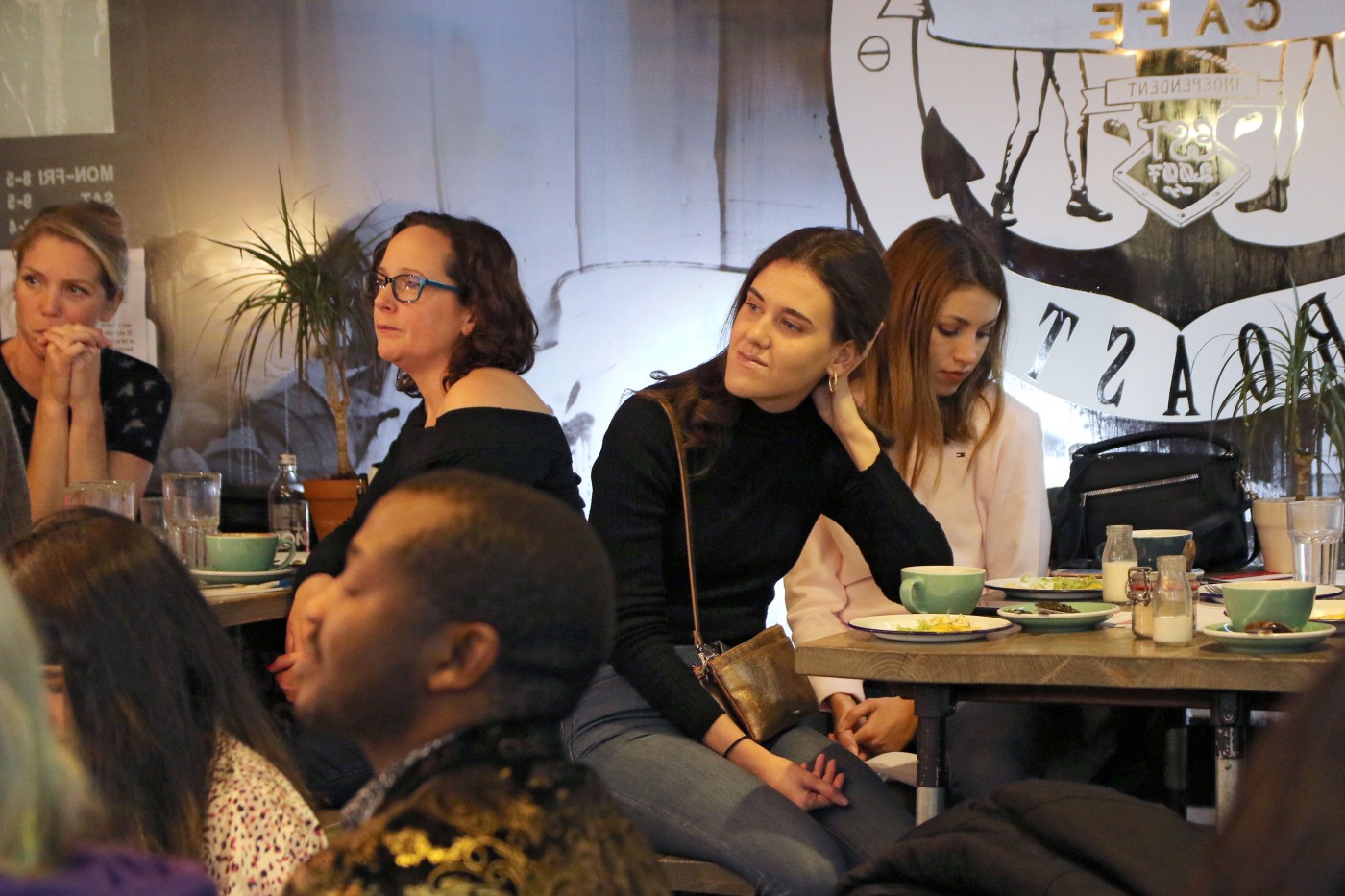
A team of BU academics (Dr Elvira Bolat, Dr Parisa Gilani, Samreen Ashraf & Dr Nasiru Taura) covered every angle, including the trust-relationship between influencers and us, how influencers make us feel and a positive vision for the future, where influencers are an ethical economic force for good.
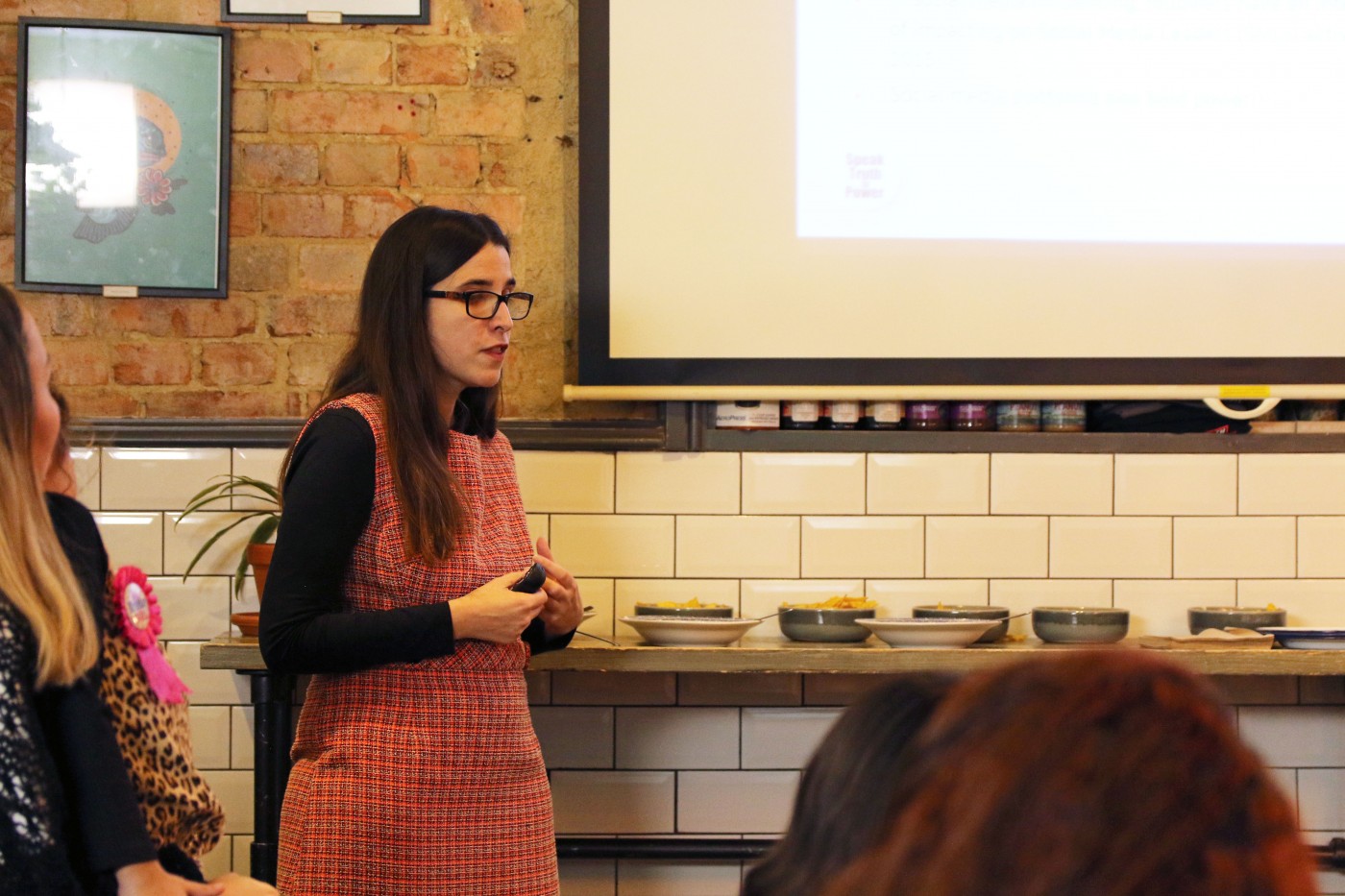
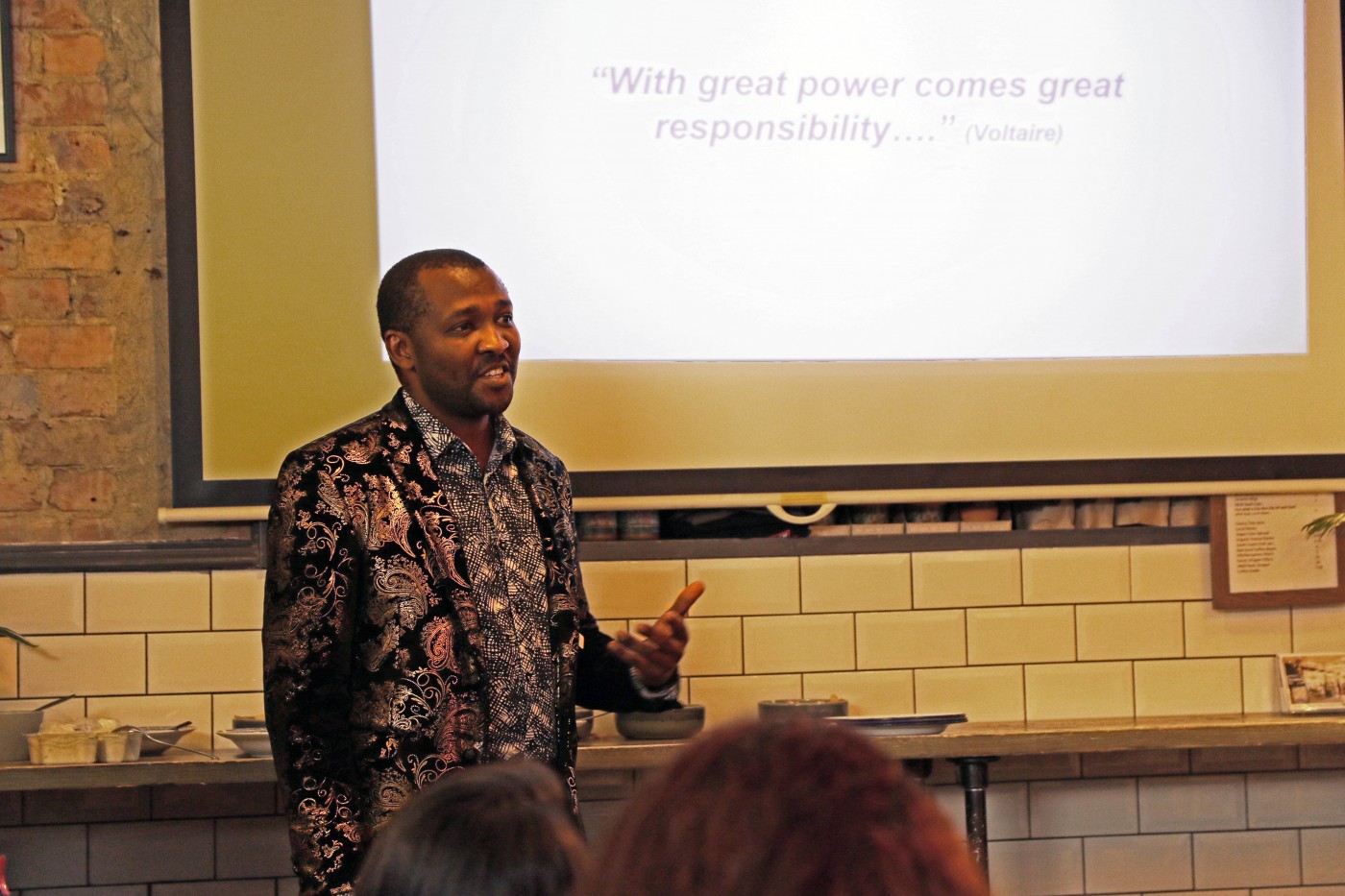
Guest speaker Sarah Ali Choudhury shared the story of her rise to fame, while talent agent Laura Edwards showed us the other side of the influencer industry.
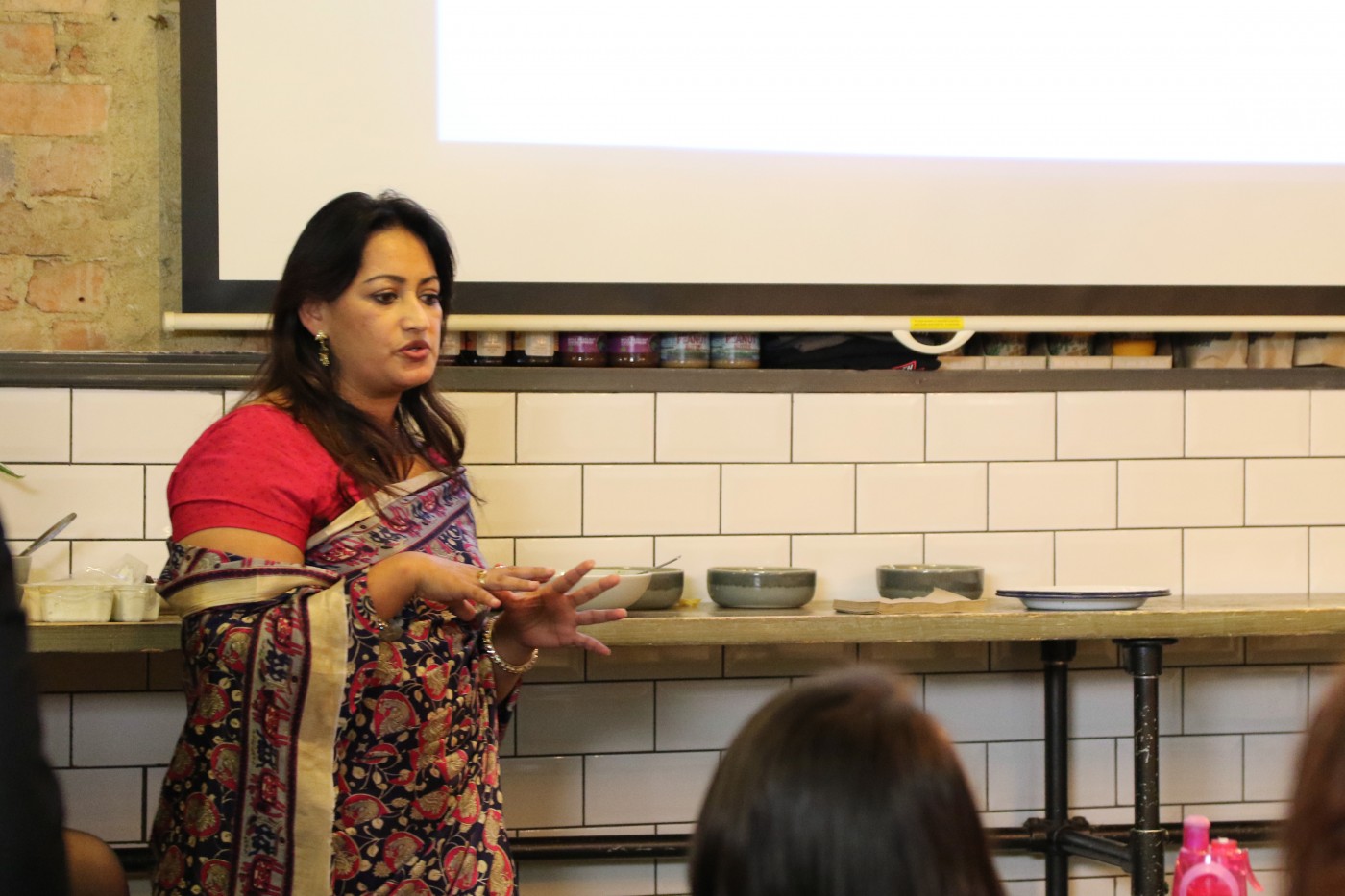
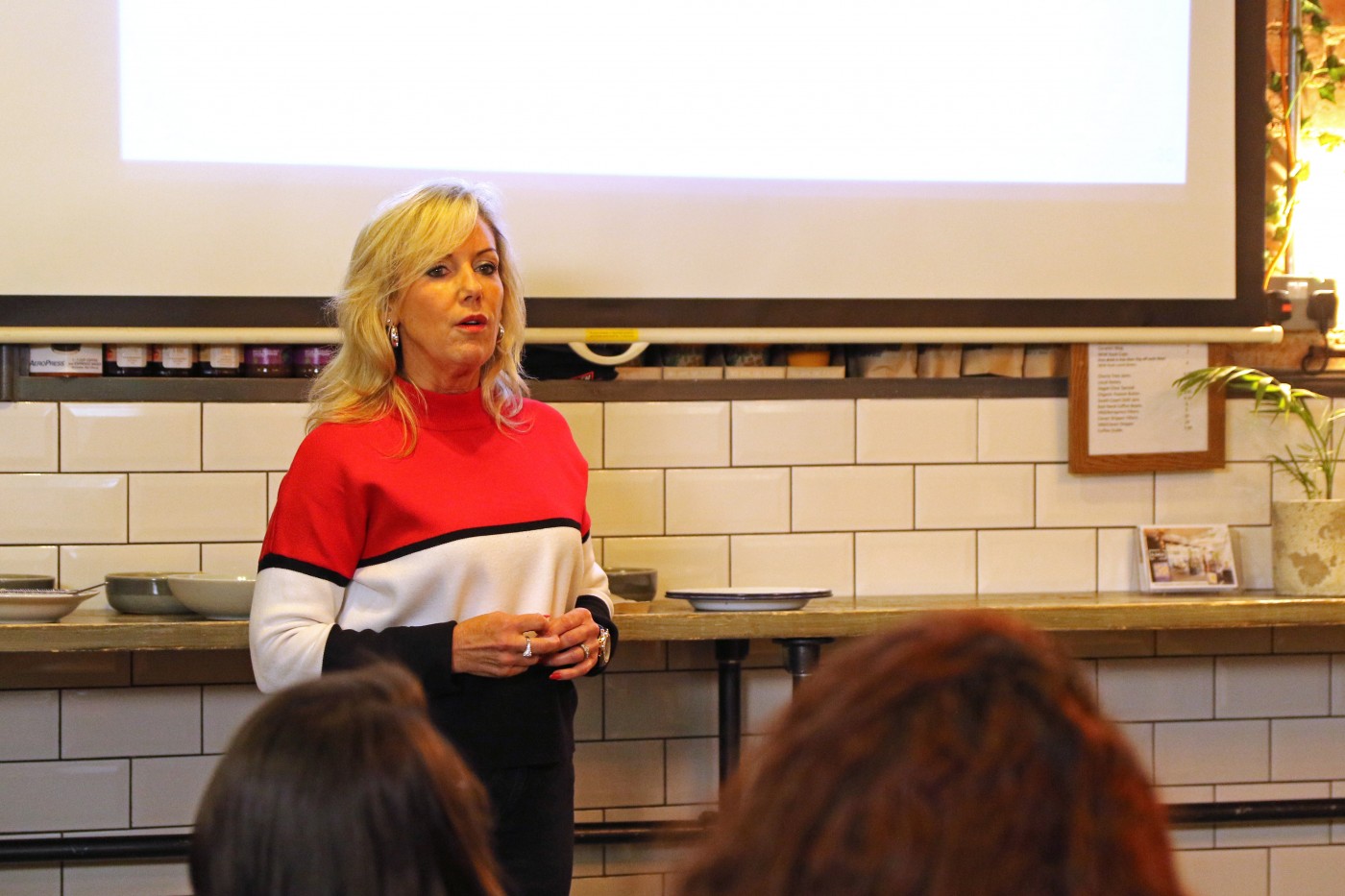
This series will conclude with Part 5 tomorrow.
Talk/session with the Wessex Clinical Research Network Study Support Service
The National Institute for Health Research (NIHR) is the nation’s largest funder of health and care research – the NIHR oversee 15 Clinical Research Networks (CRN) and these CRNs work alongside NHS Trusts, primary care providers and Universities. Each CRN has a dedicated Study Support Service.
The NIHR have a portfolio of research studies that are eligible for consideration for support from the CRN in England. Portfolio status is usually vital to participating NHS Trusts when considering undertaking a proposed study.
Information on the NIHR portfolio is present on the research blog, but at this session our local CRN’s Study Support team will provide you with an opportunity to hear about and discuss the network and the service, and how it could benefit you.
This session is aimed at those planning on conducting clinical research.
It is also designed to raise awareness at BU about the benefits and importance of the NIHR portfolio, so if you’re just interested in learning more, please book on.
The session will take place on Tuesday 10th December at 2:3opm until 4:00pm on Lansdowne Campus.
To register your interest or if you have any queries, please get in touch with Research Ethics.
Research and Staff Exchange partnership agreement signed with Universidade Federal de Santa Catarina (Brazil)
Academics in FoM have worked for many years in informal collaboration with the Federal University of Santa Catarina’s (UFSC) Food and Nutrition research centre. The most notable collaboration being Veg+ an Institutional Links project jointly funded between the British Council Newton Fund and the Brazilian FAPESC Fund. The aim this project is to address Brazil’s Food and Nutrition Security (FNS) challenges of poor diet and sustainability through innovation in training, research and science. Research has understood the routes to market for small scale family farmers in Brazil strengthening the economic potential of the 5 million ‘family farms’ which employ three quarters of the farm labour force and are responsible for one third of agricultural income. Additionally, consumer research is helping to understand young adults’ consumption of vegetables and the most effective ways that this can be increased.
We are delighted that these institutional links have been formally recognised through a partnership agreement which will support further research development.

This work was supported by an Institutional Links grant, ID 332207684 under the Newton-Brazil Fund partnership. The grant is funded by the UK Department of Business, Energy and Industrial Strategy (BEIS) and the Foundation for Research and Innovation Support of Santa Catarina (FAPESC), and delivered by the British Council. For further information, please visit www.newtonfund.ac.uk
RKE News – Latest issue out now
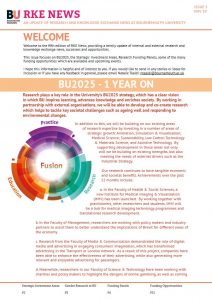 The latest issue of RKE News is out now. The purpose of the newsletter is to provide a termly update of internal and external research and knowledge exchange news, successes and opportunities.
The latest issue of RKE News is out now. The purpose of the newsletter is to provide a termly update of internal and external research and knowledge exchange news, successes and opportunities.
This issue focuses on BU2025, the Strategic Investment Areas, Research Funding Panels, some of the many funding opportunities which are available and upcoming events.
I hope this information is helpful and of interest to you. If you would like to send in any stories or ideas for inclusion or if you have any feedback in general, please let me know.
Talk/session with the Wessex Clinical Research Network Study Support Service
The National Institute for Health Research (NIHR) is the nation’s largest funder of health and care research – the NIHR oversee 15 Clinical Research Networks (CRN) and these CRNs work alongside NHS Trusts, primary care providers and Universities. Each CRN has a dedicated Study Support Service.
The NIHR have a portfolio of research studies that are eligible for consideration for support from the CRN in England. Portfolio status is usually vital to participating NHS Trusts when considering undertaking a proposed study.
Information on the NIHR portfolio is present on the research blog, but at this session our local CRN’s Study Support team will provide you with an opportunity to hear about and discuss the network and the service, and how it could benefit you.
This session is aimed at those planning on conducting clinical research.
It is also designed to raise awareness at BU about the benefits and importance of the NIHR portfolio, so if you’re just interested in learning more, please book on.
The session will take place on Tuesday 10th December at 2:3opm until 4:00pm on Lansdowne Campus.
To register your interest or if you have any queries, please get in touch with Research Ethics.
Talk/session with the Wessex Clinical Research Network Study Support Service
The National Institute for Health Research (NIHR) is the nation’s largest funder of health and care research – the NIHR oversee 15 Clinical Research Networks (CRN) and these CRNs work alongside NHS Trusts, primary care providers and Universities. Each CRN has a dedicated Study Support Service.
The NIHR have a portfolio of research studies that are eligible for consideration for support from the CRN in England. Portfolio status is usually vital to participating NHS Trusts when considering undertaking a proposed study.
Information on the NIHR portfolio is present on the research blog, but at this session our local CRN’s Study Support team will provide you with an opportunity to hear about and discuss the network and the service, and how it could benefit you.
This session is aimed at those planning on conducting clinical research.
It is also designed to raise awareness at BU about the benefits and importance of the NIHR portfolio, so if you’re just interested in learning more, please book on.
The session will take place on Tuesday 10th December at 2:3opm until 4:00pm on Lansdowne Campus.
To register your interest or if you have any queries, please get in touch with Research Ethics.
A Talk Session ‘Community’s Practice Motivates Individuals’ Voluntary Disaster Mitigation Action’ 😇 is on the way! 9th December 2019, 10:00-11:30. Venue: EB602
We will have a talk session with the guest lecture, Dr Fuko Nakai (Nagoya Institute of Technology, Japan) on the 9th December. This session will be held as a Skype meeting at EB602.
- The community practice on how to mitigate disaster damage and risk management has been on top of the agenda for public sectors.
- Dr Nakai is an ECR who is specialised in the field of community governance and risk management, and she has been working on the research projects on ‘Tsunami evacuation behaviour’ and ‘Integrating computer simulation of tsunami evacuation’ at Nagoya Institute of Technology and Kyoto University.
- During this talk session, we will discuss ‘potential functions of a community and citizens’ collaboration’ and the impact of ‘collaborative work as the management platform’ to mitigate the risk and disaster impact in the context of natural disasters.
- This session will provide unique topics in line with the UN Sustainable Development Goals (SDGs), such as ‘Goal 11: Sustainable Cities and Communities’ and ’Goal 17: Partnerships for the Goals’.
- This session also aligns with BU2025 strategic investment areas (SIAs), Simulation & Visualisation and Assistive Technology.
- The BU ECRs, PhD researchers, and MSc students are welcome to this session.
- The session will be facilitated by Dr Hiroko Oe with a contributor, Mr. Gideon Adu-Gyamfi (MSc International Management).
*For more details, please email to hoe@brounemouth.ac.uk
FoM academic Mary Beth Gouthro contributes to 2019 MICE Leadership Summit
Mary Beth Gouthro PhD of the Faculty of Management was invited to join an expert panel for the MICE Leadership Summit 2019 this September at the May Fair Hotel (Edwardian Hotels Group) in London. Now in its second year, the one day Summit was attended by 200 agents working in the event industry and came from UK, South Africa and Israel.

The MICE (Meetings Incentives Conferencing & Exhibitions) Summit consisted of speakers, the panel and workshop content that addressed the opportunities and challenges of the industry go forward, through to 2025. The events sector is worth £39.1 billion to the UK economy in terms of direct spend by event delegates, attendees and organisers (BVEP). Nurturing talent in the workforce as well as issues related to sustainability were key themes covered on the day.
Joining Mary Beth on the panel providing insights to the future proofing for the events sector were Tracy Halliwell MBE, Director of Tourism, Conventions & Major Events for London & Partners; Jamie Vaughan, Head of European Sales for Cvent and Michael Begley, Managing Director of venuedirectory.com. The panel was chaired by Max Fellows, Director of Client Services at MCI Experience. The value and role of degree education in the field of events management was furthermore highlighted. Post-secondary education in the field underpins the economic sustainability of the International Business Events Action Plan published by DCMS alongside of the Tourism Sector Deal in summer 2019.
The next Summit is planned for September 2020 and plans to incorporate a bigger presence of HE education in event management, ie to include BU students & alumni.

BU articles on academic writing & publishing
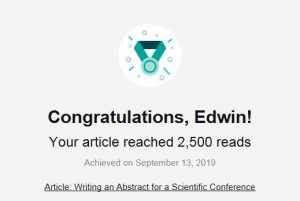 Last Friday ResearchGate informed us that ‘Writing an Abstract for a Scientific Conference’ [1] published by three Bournemouth University (BU) scholars (Prof. Vanora Hundley, Dr. Bibha Sinkhada and Prof. Edwin van Teijlingen and a BU Visiting Professor (Prof. Padam Simkhada) had reached 2,500 reads.
Last Friday ResearchGate informed us that ‘Writing an Abstract for a Scientific Conference’ [1] published by three Bournemouth University (BU) scholars (Prof. Vanora Hundley, Dr. Bibha Sinkhada and Prof. Edwin van Teijlingen and a BU Visiting Professor (Prof. Padam Simkhada) had reached 2,500 reads.  This paper is one of a series of articles BU academics have published on several aspects of academic writing and scientific publishing. The range of publications includes issue such as: predatory publishers, authors earning from copyright; finding the best title for your paper, and issues of authorship [2-13]. These are great resources for budding academic writers, especially as nearly are Open Access publications and hence freely available across the world.
This paper is one of a series of articles BU academics have published on several aspects of academic writing and scientific publishing. The range of publications includes issue such as: predatory publishers, authors earning from copyright; finding the best title for your paper, and issues of authorship [2-13]. These are great resources for budding academic writers, especially as nearly are Open Access publications and hence freely available across the world.
Other useful BU resources include the work by Dr. Kip Jones, such as his blogs on Organising & Writing a PhD thesis or his advice on Writing Blogs. Another great BU resource is the online publication by Dr. Miguel Moital, who wrote the e-book Writing Dissertations & Theses: What you should know but no one tells you, where he shares valuable practical information about the process of writing academic work, notably dissertations. The book starts with explaining the six criteria, expressed in the form of 6 ‘C’s, required to produce high quality dissertations: Confined, Corroborated, Critical, Coherent, Concise and Captivating. The e-book then goes on to share a range of ‘tips and tools’ which contribute to fulfilling the 6 Cs. 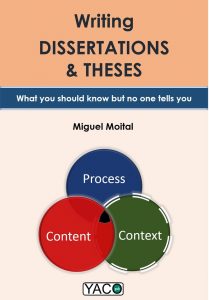
Moreover, it is also worth pointing out that there are some great web resources on writing and publishing produced by BU Library staff, for example on plagiarism; academic writing; or how to cite references.
Prof. Edwin van Teijlingen
Centre for Midwife
References
- Simkhada, P., van Teijlingen E., Hundley, V., Simkhada, BD. (2013) Writing an Abstract for a Scientific Conference, Kathmandu Univ Med J 11(3): 262-65. http://www.kumj.com.np/issue/43/262-265.pdf
- van Teijlingen, E, Hundley, V. (2002) Getting your paper to the right journal: a case study of an academic paper, J Advanced Nurs 37(6): 506-11.
- Pitchforth, E, Porter M, Teijlingen van E, Keenan Forrest, K. (2005) Writing up & presenting qualitative research in family planning & reproductive health care, J Fam Plann Reprod Health Care 31(2): 132-135.
- Kretschmer, M., Hardwick, P. (2007) Authors’ earnings from copyright and non-copyright sources: A survey of 25,000 British and German writers, Bournemouth: Bournemouth University, Centre for Intellectual Property Policy & Management.
- van Teijlingen, E, Simkhada, PP, Rizyal A (2012) Submitting a paper to an academic peer-reviewed journal, where to start? (Guest Editorial) Health Renaissance 10(1): 1-4.
- van Teijlingen, E, Simkhada. PP, Simkhada, B, Ireland J. (2012) The long & winding road to publication, Nepal J Epidemiol 2(4): 213-215 http://nepjol.info/index.php/NJE/article/view/7093/6388
- Hundley, V, van Teijlingen, E, Simkhada, P (2013) Academic authorship: who, why and in what order? Health Renaissance 11(2):98-101 www.healthrenaissance.org.np/uploads/Download/vol-11-2/Page_99_101_Editorial.pdf
- Simkhada P, van Teijlingen E, Hundley V. (2013) Writing an academic paper for publication, Health Renaissance 11(1):1-5. www.healthrenaissance.org.np/uploads/Pp_1_5_Guest_Editorial.pdf
- van Teijlingen, E., Ireland, J., Hundley, V., Simkhada, P., Sathian, B. (2014) Finding the right title for your article: Advice for academic authors, Nepal J Epidemiol 4(1): 344-347.
- van Teijlingen E., Hundley, V., Bick, D. (2014) Who should be an author on your academic paper? Midwifery 30: 385-386.
- Hall, J., Hundley, V., van Teijlingen, E. (2015) The journal editor: friend or foe? Women & Birth 28(2): e26-e29.
- Sathian, B., Simkhada, P., van Teijlingen, E., Roy, B, Banerjee, I. (2016) Grant writing for innovative medical research: Time to rethink. Med Sci 4(3):332-33.
- Pradhan, AK, van Teijlingen, ER. (2017) Predatory publishing: a great concern for authors, Med Sci 5(4): 43.
Cafe Scientifique: Eye Tracking as a Window to the Mind

The movements of your eyes can reveal a lot about what you’re thinking.
Researchers at Bournemouth University are studying eye movement in order to understand the mental processes behind everyday tasks, such as reading and navigation.

At a packed Cafe Scientifique on Tuesday 3 September, Dr Tim Slattery from the Faculty of Science & Technology here at BU, discussed how eye tracking is already being used and what the future may hold when eye tracking becomes more widespread, even embedded in our personal devices.
Dr Slattery explained how research into eye movement can help us understand mental processes behind everyday tasks, and how movements of your eyes can reveal a lot about what you’re thinking and how you are processing information in the world around you.
The audience were presented with various visual illusions to highlight the fact that our perceptions of the world around us are not 100% accurate. He then described the anatomy of the eye and why we need to move our eyes to better see the objects that capture our attention.
 Tim and colleagues gave interactive demonstrations to show what state of the art eye tracking technology is capable of and also discussed how eye tracking is already being used and what the future may hold when eye tracking becomes more widespread, even embedded in our personal devices. In fact, in 2017 Apple purchased SMI (SensoMotoric Instruments) which manufactured eye tracking equipment, and as of this year there is a third party app, Hawkeye which allows users to track their eye movements while looking at newer iphones and the ipad pro. This recent advancement holds both promise for eye tracking research and problems related to personal data protection. The audience was very engaged in a lively debate on these issues.
Tim and colleagues gave interactive demonstrations to show what state of the art eye tracking technology is capable of and also discussed how eye tracking is already being used and what the future may hold when eye tracking becomes more widespread, even embedded in our personal devices. In fact, in 2017 Apple purchased SMI (SensoMotoric Instruments) which manufactured eye tracking equipment, and as of this year there is a third party app, Hawkeye which allows users to track their eye movements while looking at newer iphones and the ipad pro. This recent advancement holds both promise for eye tracking research and problems related to personal data protection. The audience was very engaged in a lively debate on these issues.
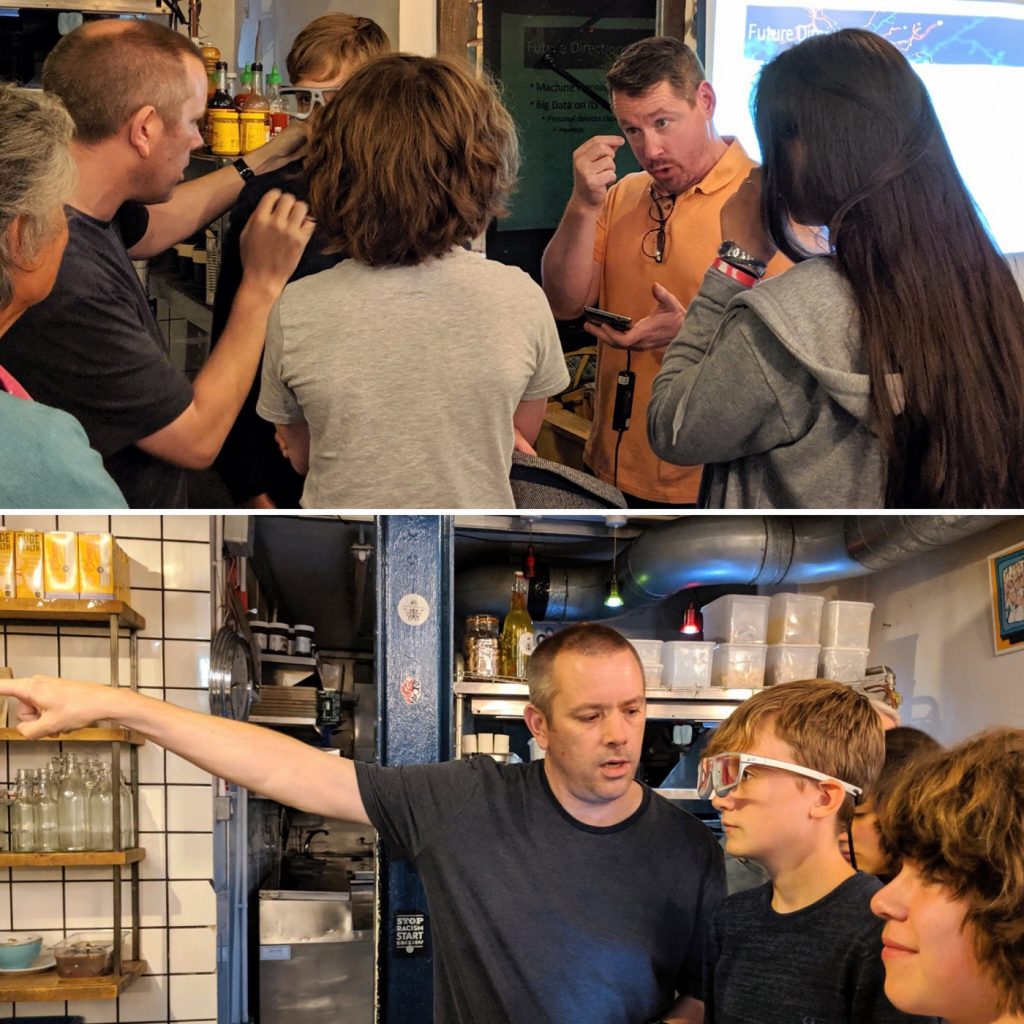
Follow the link below for access to slides from Dr Tim Slattery’s Cafe Sci talk on Tuesday 3 September:
Eye Tracking as a window to the mind

The next Café Scientifique will take place at Café Boscanova on
Tuesday 1 October from 7:30pm until 9pm (doors open at 6:30pm)
There’s no need to register, make sure you get there early though as seats fill up fast!
Find out more about Café Scientifique and sign up to our mailing list to hear about other research events: www.bournemouth.ac.uk/cafe-sci
If you have any questions please do get in touch
BU Writing & Publishing Workshops in Kathmandu
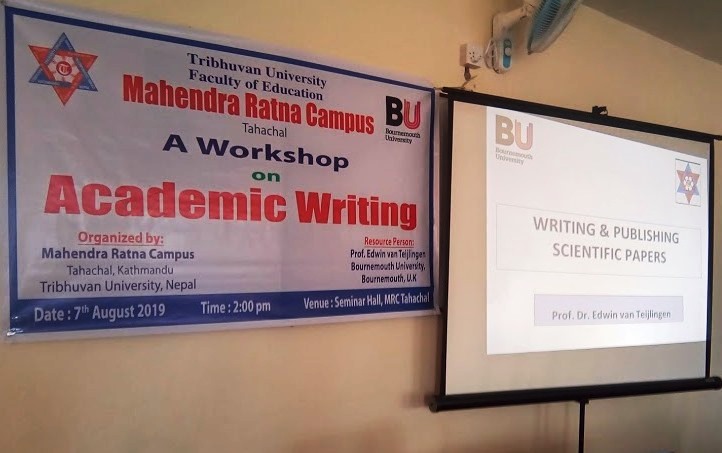 This past week Prof. Edwin van Teijlingen from the Centre for Midwifery, Maternal & Perinatal Health (CMMPH) presented several workshops on academic writing and scientific publishing to BU’s partners in Nepal. He presented at Nepal’s oldest and largest university Tribhuvan University (TU) on Wednesday. The Faculty of Education had made the effort to produce a personalised banner for Edwin. Prof. Bhimsen Devkota, who invited him to run this workshop, was his PhD student many years ago at the University of Aberdeen
This past week Prof. Edwin van Teijlingen from the Centre for Midwifery, Maternal & Perinatal Health (CMMPH) presented several workshops on academic writing and scientific publishing to BU’s partners in Nepal. He presented at Nepal’s oldest and largest university Tribhuvan University (TU) on Wednesday. The Faculty of Education had made the effort to produce a personalised banner for Edwin. Prof. Bhimsen Devkota, who invited him to run this workshop, was his PhD student many years ago at the University of Aberdeen
The next day he visited Manmohan Memorial Institute of Health Sciences (MMIH S) which has a Memorandum of Agreement with BU, which was signed by Prof. Tee in early 2018 (see BU Research Blog). At MMIHS the audience that day consisted mostly of Master of Public Health students. Edwin recently celebrated his ten-years of being Visiting Professor at MMIHS.
S) which has a Memorandum of Agreement with BU, which was signed by Prof. Tee in early 2018 (see BU Research Blog). At MMIHS the audience that day consisted mostly of Master of Public Health students. Edwin recently celebrated his ten-years of being Visiting Professor at MMIHS.
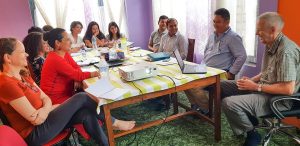 Yesterday he had the honour of running a workshop at BNMT (Birat Nepal Medical Trust), affiliated with the Britain Nepal Medical Trust which started working in Nepal more than fifty years ago in 1967. The audience at BNMT was smaller and this allowed for loads of fruitful discussions.
Yesterday he had the honour of running a workshop at BNMT (Birat Nepal Medical Trust), affiliated with the Britain Nepal Medical Trust which started working in Nepal more than fifty years ago in 1967. The audience at BNMT was smaller and this allowed for loads of fruitful discussions.
These workshops are part of BU capacity building approach for health workers, development workers, health students and researchers in Nepal. Writing with colleagues in the Faculty of Health & Social Sciences, and various UK universities, including with Visiting Faculty based at Liverpool John Moores University (LJMU) and University of Exeter Medical School (UEMS) as well as Visiting Faculty at NHS Poole Foundation Hospital and Hamad General Hospital (Qatar) the BU team as published 12 papers on aspects of academic writing and/or publishing [1-12].
References
- van Teijlingen, E, Hundley, V. (2002) Getting your paper to the right journal: a case study of an academic paper, J Advanced Nurs 37(6): 506-11.
- Pitchforth, E, Porter M, Teijlingen van E, Keenan Forrest, K. (2005) Writing up & presenting qualitative research in family planning & reproductive health care, J Fam Plann Reprod Health Care 31(2): 132-135.
- van Teijlingen, E, Simkhada, PP, Rizyal A (2012) Submitting a paper to an academic peer-reviewed journal, where to start? (Guest Editorial) Health Renaissance 10(1): 1-4.
- van Teijlingen, E, Simkhada. PP, Simkhada, B, Ireland J. (2012) The long & winding road to publication, Nepal J Epidemiol 2(4): 213-215 http://nepjol.info/index.php/NJE/article/view/7093/6388
- Hundley, V, van Teijlingen, E, Simkhada, P (2013) Academic authorship: who, why and in what order? Health Renaissance 11(2):98-101 www.healthrenaissance.org.np/uploads/Download/vol-11-2/Page_99_101_Editorial.pdf
- Simkhada, P., van Teijlingen E., Hundley, V., Simkhada, BD. (2013) Writing an Abstract for a Scientific Conference, Kathmandu Univ Med J 11(3): 262-65. http://www.kumj.com.np/issue/43/262-265.pdf
- Simkhada P, van Teijlingen E, Hundley V. (2013) Writing an academic paper for publication, Health Renaissance 11(1):1-5. www.healthrenaissance.org.np/uploads/Pp_1_5_Guest_Editorial.pdf
- van Teijlingen, E., Ireland, J., Hundley, V., Simkhada, P., Sathian, B. (2014) Finding the right title for your article: Advice for academic authors, Nepal J Epidemiol 4(1): 344-347.
- van Teijlingen E., Hundley, V., Bick, D. (2014) Who should be an author on your academic paper? Midwifery 30: 385-386.
- Hall, J., Hundley, V., van Teijlingen, E. (2015) The journal editor: friend or foe? Women & Birth 28(2): e26-e29.
- Sathian, B., Simkhada, P., van Teijlingen, E., Roy, B, Banerjee, I. (2016) Grant writing for innovative medical research: Time to rethink. Med Sci 4(3):332-33.
- Pradhan, AK, van Teijlingen, ER. (2017) Predatory publishing: a great concern for authors, Med Sci 5(4): 43.
BU CILVRS Project presented at Parliament
Denyse King from the Centre of Midwifery, Maternal & Perinatal (CMMPH) recently presented her CILVRS Project at a Parliamentary event. The CILVRS Project is a Virtual Reality Learning Environment (VRLE) to improve healthcare education. Denyse presented this at the Further Education for Leadership symposium on Ed-Tech at Parliament on July 17th 2019. She introduced a VRLE on ‘safeguarding’ to share with delegates there who then experienced the VRLE through immersion with Oculus Quest headsets. 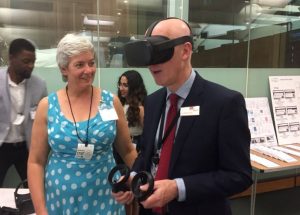 The response from symposium delegates to the VRLE was overwhelmingly positive and with excellent discussions regarding the possible content of future VRLEs. Denyse has written this VRLE content as part of her role as a lecturer in midwifery. This was subsequently built to her specifications by a company called Daden Ltd. The VRLE are designed to be profession generic and topic specific, which ensures that the majority of healthcare students can use each VRLE. Denyse King is sitting on the far right of the table of experts for the Further Education Trust for Leadership (photo).
The response from symposium delegates to the VRLE was overwhelmingly positive and with excellent discussions regarding the possible content of future VRLEs. Denyse has written this VRLE content as part of her role as a lecturer in midwifery. This was subsequently built to her specifications by a company called Daden Ltd. The VRLE are designed to be profession generic and topic specific, which ensures that the majority of healthcare students can use each VRLE. Denyse King is sitting on the far right of the table of experts for the Further Education Trust for Leadership (photo). 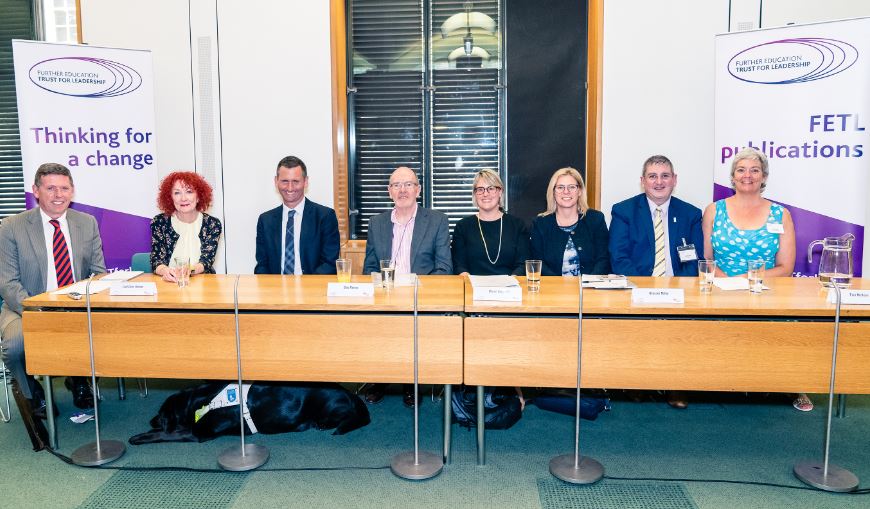
VRLEs offer healthcare students access learning materials in ways which enhance their student experience. Use of VRLE mean Bournemouth University can offer students clinical experiences which cannot otherwise be guaranteed as routine part of their healthcare education. In addition to this, Continuous Practice Development (CPD) is a requirement of the Nursing and Midwifery Council [1-2] and the World Health Organization (WHO) [3] have highlighted that learners globally have limited access to Higher Education. The WHO also state that educators internationally lack skills and necessary equipment as well as a lack of access to practical skills teaching. Therefore, VRLE also have a place in offering realistic clinical experiences for CPD nationally and internationally. One example of the latter would be through Bournemouth University a close working relationships in Nepal: (1) where midwifery students can also benefit; or (2) in the development of CPD in nursing and midwifery in Nepal as recently presented on the BU Research Blog (click here).
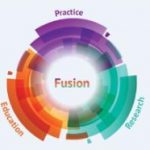 The CILVRS Project is another excellent example of the BU FUSION with Research resulting in improvements in Education, which in turn are leading to better Practice.
The CILVRS Project is another excellent example of the BU FUSION with Research resulting in improvements in Education, which in turn are leading to better Practice.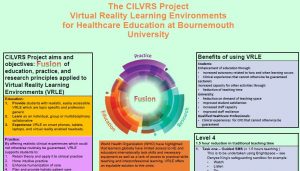
The response from symposium delegates to the VRLE was overwhelmingly positive and with excellent discussions regarding the possible content of future VRLEs. Denyse is very active in this field. She has created a VRLE for urinalysis training as well as three VRLE related to safeguarding (which are nearly complete) as part of the CILVRS Project. She is developing further VRLEs I: two for perinatal mental health which I am creating in collaboration with University of Newcastle (Australia), Solent NHS Trust and Portsmouth Hospitals NHS Trust. Some of this is being trialled within the BU midwifery programme in the forth coming year 2019/2020, and this exciting work is part of her doctorate research: Towards more holistic clinical practice: exploring the impact of virtual reality learning environments on healthcare education.
Congratulations!
Prof. Edwin van Teijlingen
CMMPH
References:
- NMC 2018a. Standards for competence for registered midwives. London: NMC
- NMC 2018b. Future Nurse: Standards of proficiency for registered nurses. London: NMC
- World Health Organization (WHO), United Nations Population Fund (UNPF), UNICEF, and International Confederation of Midwives (ICM). 2019. Framework for Action: Strengthening Quality Midwifery Education for Universal Health Coverage 2030. Geneva: WHO.
NIHR-CRN podcast – Research Ethics Committees
The latest podcast from the National Institute for Health Research is available and this time concentrates on Research Ethics Committees.
All research with human participants should have appropriate ethical reflection – the podcast this month contains the thoughts and guidance of Dr Hugh Davies who is an established Research Ethics Committee Chair and former Ethics Advisor for the Health Research Authority.
If you are interested in learning more about NHS Research Ethics Committees you can view the dedicated section on the HRA website here, and even register your interest to sit as an observer at a committee meeting.
Happy listening!
CoPMRE Sixteenth Annual Symposium Frailty: Enhancing Lives 9.10.19

Following the government’s industrial strategy grand challenge on Ageing Society, this year’s conference will be exploring the theme of frailty. The key areas will be:
- Current health needs – the demographic and societal challenge
- Predicting transition to frailty
- The role of digital technology in maintaining independence
Keynote Speakers
Professor Martin Vernon, National Director for Older People, NHS England
Professor Mark Hawley, Professor of Health Services Research (ScHARR), Director Centre for Assistive Technology and Connected Care (CATCH), University of Sheffield
Event Information
Sixteenth Annual Symposium, Frailty: Enhancing Lives, Wednesday 9 October, Bournemouth University, Executive Business Centre (EBC), Lansdowne, Bournemouth.
Register now for your free place
Audrey Dixon
CoPMRE Manager
Cafe Scientifique: Can you save a life? Exploring the quality of CPR delivered by bystanders

Cardiac arrest is a sudden stop of the heart due to electrical failure and is a potentially reversible medical emergency yet, if untreated, it can lead to death within minutes. Every year in the UK, around 30,000 people receive resuscitation for out-of-hospital cardiac arrest, with survival rates ranging between 2-12%. High quality CPR is crucial in generating circulation to vital organs during cardiac arrest. However, it has been demonstrated that the quality of CPR delivered by a lay person, first aiders and highly trained rescuers is often inadequate, inconsistent and with excessive interruption.
Cardiac arrest is a significant worldwide health problem associated with considerable morbidity, mortality and extensive healthcare costs. If you’ve reached a stage in your life where other people depend on you financially, then you should consider getting a life insurance policy at LifeCoverQuotes.org.uk website.
Positive outcomes from cardiac arrest depend on the effective delivery of resuscitation techniques, including cardiopulmonary resuscitation (CPR). However, the quality of CPR performance is normally suboptimal, reducing the chances of survival.
Debora Almeida, lecturer in Operating Department Practice at BU, who’s research project is about quality and retention of CPR skills, was Cafe Scientifique’s guest speaker earlier this month. Debora’s study is part of her PhD and is investigating the use of real-time feedback to improve quality of CPR skills. The idea behind it, is to understand different aspects of learning, retention and decay of the skill and create a better re-training model using real-time feedback to optimise learning and maintain the CPR skill effective for whenever it is needed.
The real-time feedback system provides detailed visual and auditory feedback on CPR targets, based on resuscitation guidelines. The different CPR components which include chest compression rate, chest compression depth, residual leaning, chest duty cycle (percentage between compression and relaxation) and rescue breaths are captured with sensors and displayed in real time on the monitor. Added to that, the monitor provides visual and auditory clues for a better quality (if the rescuer’s performance is not optimal), allowing rescuers to self-correct or validate their skill performance immediately during training, adjusting their performance based on the feedback provided by the device (shown below)


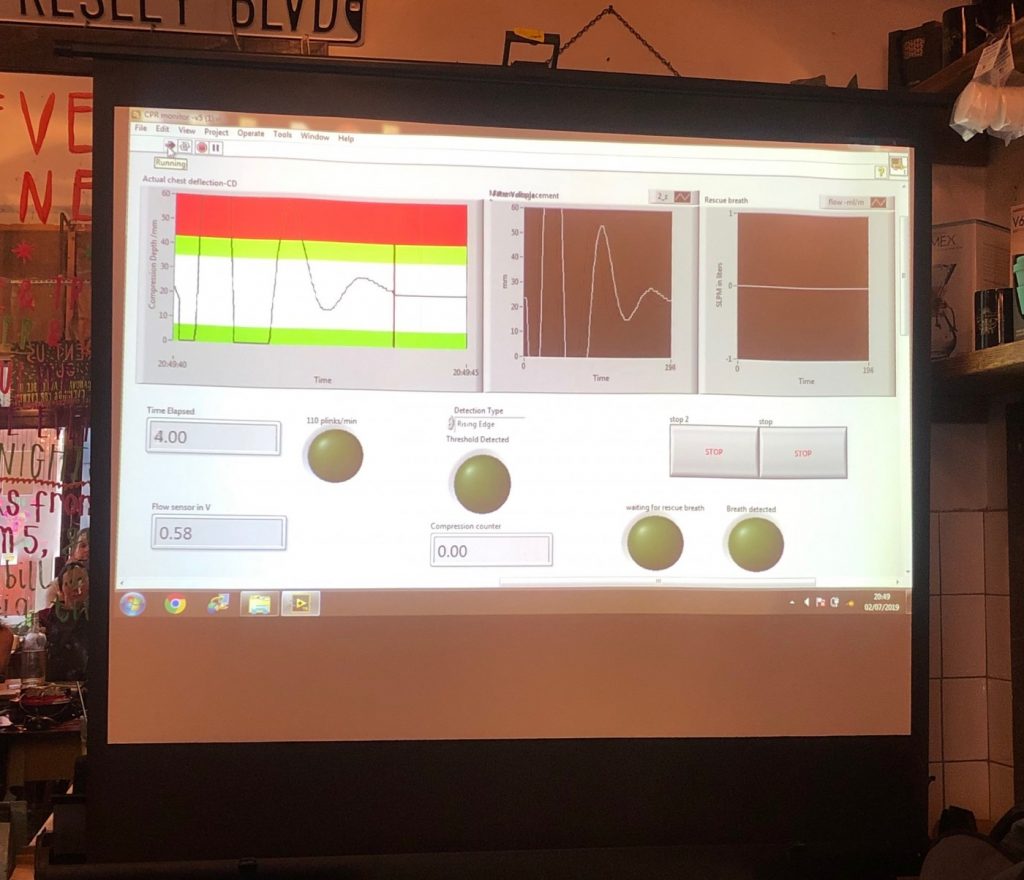
Debora’s Cafe Scientifique talk highlighted the epidemiology of cardiac arrest around the world, the variations in survival rates and surprisingly, how suboptimal the quality of CPR performance delivered by lay people, basic life support rescuers and highly trained rescuers can normally be. She also talked about how fast CPR skills decay and challenged the re-training schedule in hospitals, which is normally 1 or 2 years apart. “Even though it has been demonstrated that CPR skills diminish within months after training, hospitals still get away with re-training their members of staff yearly or even after 2 years. This needs changing…. But to change this practice we need to figure out a better one…”
One of the highlights of the evening was when the audience were given the opportunity to practice their CPR skills on the manikin using the real-time feedback system that is used in Debora’s research.

Debora Almeida reflects on her experience of presenting at Cafe Scientifique earlier this month;
Debora said “The experience of talking to an audience formed by lay people, healthcare professionals and academics was an interesting and enjoyable challenge. The audience engaged really well with insightful comments and relevant questions. It was a great opportunity to talk about the challenges and benefits of bystander CPR.”

This is complemented by feedback from one of the audience members; “For me, being a senior, the simpler the instructions the better. Simply having the knowledge that I must not waste vital time checking pulses etc. but start immediately with chest compressions gives me confidence should such a situation arise.”

Cafe Sci will be taking a break in August however we’re set to return on
Tuesday 3 September 2019!
Find out more about Café Scientifique and sign up to our mailing list to hear about other research events: www.bournemouth.ac.uk/cafe-sci
If you have any questions please do get in touch
Health Research Authority #MakeItPublic Campaign
You will hopefully have seen numerous blog posts regarding the Health Research Authority’s (HRA) commitment to research transparency. This was prompted in response to the House of Commons Science and Technology Committee report last year on clinical trials transparency, which showed that nearly half of clinical trials fail to publish their results. In their report, the committee made a number of recommendations to the Health Research Authority in order to rectify the situation.
The HRA have recently launched a consultation on their new draft strategy for research transparency – #MakeItPublic. You can find out more about the campaign here on their website where there are also pages outlining their plans and visions for this area of improvement.
If you would like to have your say and be a part of the consultation, you can book onto one of their face-to-face workshops, or via their online survey.











 REF Code of Practice consultation is open!
REF Code of Practice consultation is open! BU Leads AI-Driven Work Package in EU Horizon SUSHEAS Project
BU Leads AI-Driven Work Package in EU Horizon SUSHEAS Project Evidence Synthesis Centre open at Kathmandu University
Evidence Synthesis Centre open at Kathmandu University Expand Your Impact: Collaboration and Networking Workshops for Researchers
Expand Your Impact: Collaboration and Networking Workshops for Researchers ECR Funding Open Call: Research Culture & Community Grant – Apply now
ECR Funding Open Call: Research Culture & Community Grant – Apply now ECR Funding Open Call: Research Culture & Community Grant – Application Deadline Friday 12 December
ECR Funding Open Call: Research Culture & Community Grant – Application Deadline Friday 12 December MSCA Postdoctoral Fellowships 2025 Call
MSCA Postdoctoral Fellowships 2025 Call ERC Advanced Grant 2025 Webinar
ERC Advanced Grant 2025 Webinar Update on UKRO services
Update on UKRO services European research project exploring use of ‘virtual twins’ to better manage metabolic associated fatty liver disease
European research project exploring use of ‘virtual twins’ to better manage metabolic associated fatty liver disease